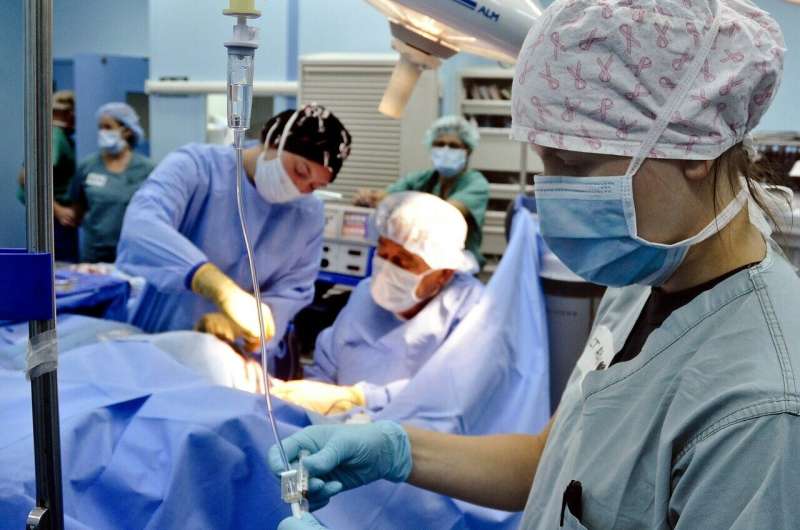Research Uncovers How Gut Microbiota and Genes Worsen Ulcerative Colitis

New research reveals how interactions between gut microbiota and gene mutations, especially in OTUD3, aggravate ulcerative colitis through immune signaling pathways, opening potential for targeted therapies.
Ulcerative colitis (UC) is a chronic inflammatory condition affecting the large intestine, leading to symptoms like abdominal pain, cramping, frequent bowel movements, and bloody diarrhea. The disease often presents with periods of remission followed by sudden flare-ups, and currently, there is no cure available.
A significant factor in UC is the role of the intestinal microbiota, which encompasses the diverse community of microbes residing in the gut. In healthy individuals, this microbiota helps facilitate digestion and supports overall health. However, in UC patients, this microbial community becomes imbalanced, a condition known as dysbiosis. Dysbiosis involves a reduction in beneficial microbes and an increase in harmful ones, contributing to disease progression.
Recent research published in Science Immunology by a team led by Osaka University has shed light on the complex interaction between gut microbes, genetics, and immune signaling pathways in UC. The study focused on how mutations in the OTUD3 gene, alongside dysbiosis, influence the severity of UC. They identified that specific mutations, known as single nucleotide variants (SNPs), in OTUD3 act as risk factors for developing the disease.
The researchers examined the gut microbiota from both healthy individuals and UC patients. When they transplanted these microbiotas into mice models, results showed that only mice with mutant OTUD3 genes developed UC-like symptoms after receiving UC microbiota. This indicated a genetic predisposition that interacts with microbial imbalance.
Further investigation revealed that the STING protein, which is activated by microbes, becomes overactive when OTUD3 mutations are present. This overactivation leads to increased inflammation in the colon. Notably, transplanting UC microbiota into mice lacking the STING gene prevented the development of UC symptoms, confirming the pathway’s central role.
This research highlights that UC arises from a combination of genetic mutations and alterations in the gut microbial environment. Understanding this interplay opens new avenues for targeted therapies. The findings suggest that modulating gut microbiota and inhibiting STING signaling could serve as promising strategies for UC treatment. Ultimately, this study advances our knowledge of the disease mechanisms and may lead to more precise diagnostic and individualized treatment options for UC patients.
Source: Medical Xpress
Stay Updated with Mia's Feed
Get the latest health & wellness insights delivered straight to your inbox.
Related Articles
Majority of Donor-Conceived Children Are Informed of Their Biological Origins, New Study Finds
A new study shows that most parents of donor-conceived children disclose their origins early, supporting healthy identity development in children.
New Insights into Mitochondrial Dysfunction's Role in Alzheimer’s Disease Progression and Therapy
Recent Mayo Clinic research highlights mitochondrial complex I dysfunction as a key factor in Alzheimer's disease, opening new paths for early intervention and personalized treatment strategies.
The Impact of Social and Environmental Factors on Preoperative Fitness
Socioeconomic and environmental factors significantly affect patients' physical preparedness before surgery, impacting outcomes. New research highlights disparities in cardiorespiratory fitness linked to social determinants, emphasizing the need for tailored preoperative support.
New Insights into Key Genes Driving Colon Cancer Progression
Recent research highlights the critical role of the SOX9 gene in suppressing colon cancer progression and metastasis, revealing potential targets for future therapies.



